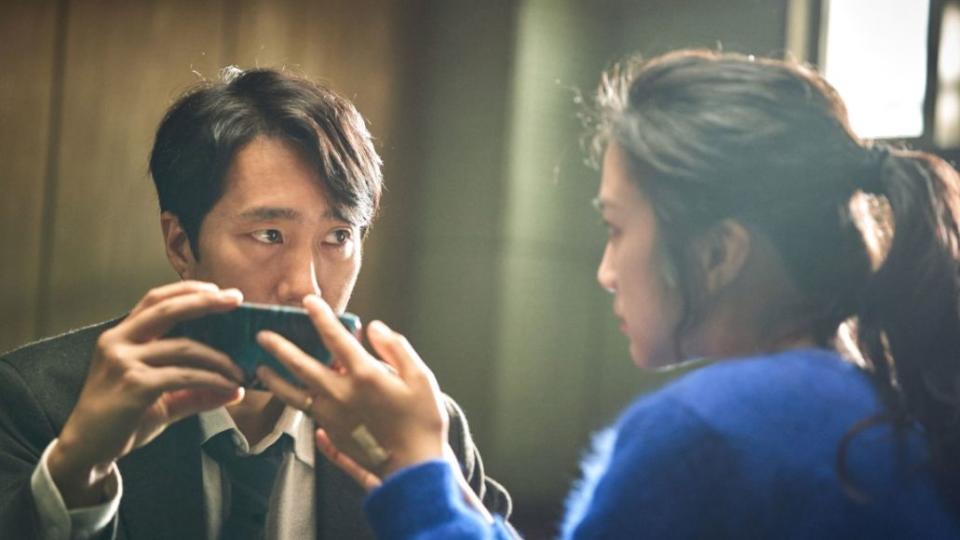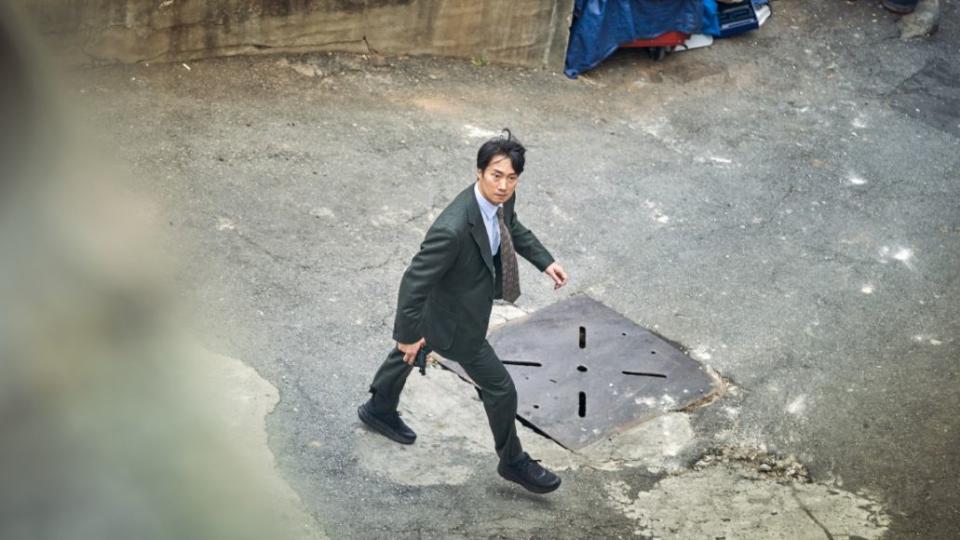Chan-wook Park’s Decision to Leave Is a Sizzling Romantic Thriller: Review
- Oops!Something went wrong.Please try again later.
- Oops!Something went wrong.Please try again later.
- Oops!Something went wrong.Please try again later.
The post Chan-wook Park’s Decision to Leave Is a Sizzling Romantic Thriller: Review appeared first on Consequence.
This review is part of our coverage of the 2022 New York Film Festival.
The Pitch: A mountain climber is found dead at the bottom of one of Busan’s most intimidating peaks. An accident? Probably. But ace Busan detective Hae-jun (Park Hae-il) still finds himself drawn to the man’s Chinese widow, Seo-rae (Tang Wei), with whom he shares a beguiling, unspoken connection. She’s elusive, enigmatic; he grows more obsessed with her the longer he watches her on long stakeouts. And the closer the two get, the harder it is for him to see the woman she truly is — and the harder for her to hide it.
The Mist: If there’s one thing you can count on from a Chan-wook Park film, it’s that it will be chock full of surprises. That’s certainly true of Oldboy, Stoker, and The Handmaiden, three of his most classic works, all of which play on the conventions of the revenge film, the coming-of-age story, the historical thriller, to tell strange stories about the ways we break out of our own narratives.
At first, Decision to Leave feels like a departure from that approach — a straight-down-the-middle tale of a cop falling for his prime suspect, right down to the interrogations that turn into flirtations and the sizzling potential energy of hands resting just a bit too close to one another.
And yet, even within these structures, Park comes through with his typically vibrant, inventive command of tone and camera. Virtually every composition and camera movement from DP Kim Ji-yong is gasp-inducing, aided by some truly exciting blocking from Park.
Overhead shots of flashlights scanning a dark crime scene, shots from the POV of a dead man’s eye, obscured by the fly that’s just landed on it — there are angles and movements it’s hard to imagine anyone’s ever attempted before. Phone conversations intercut between transparent views from the inside of a smartphone screen to in-person conversations as if the other part is in the room — tantalizing whiffs of the longing two people feel when they’re far apart, yet feel intimately close.
The performances also match this level of precision, most notably Tang Wei (who already dazzled in Park’s previous The Handmaiden) as the secretive femme fatale who clouds Hae-joon’s vision — in some cases literally, as his penchant for eye drops implies.

Decision to Leave (MUBI)
When we first meet him, he’s clearly a man addicted to his job: he volunteers for stakeouts because he can’t sleep, and his marriage to his wife (Lee Jung-hyun) is crumbling due to its long-distance nature (she lives in the sleepy seaside burg of Ipo hours away, while he works in the bustling city of Busan). He needs mystery to survive, and Seo-rae offers so much mystery for his brain to wrap itself around.
There’s plenty of eroticism in their dynamic, though it doesn’t tumble into the explicit coupling of The Handmaiden; it’s expressed instead in halting conversations, the taste of overpriced sushi takeout, the furtive fussing over the right text message. (Sidenote: Park gets the way technology has changed the way we communicate, remember, and even fall in love more than a lot of contemporary filmmakers.)
Park choreographs their movements to put them in sync, even at great distances; they’re simpatico. Which, of course, makes the ensuing turns all the more complicated when they eventually arrive, leaving Hae-joon with some very difficult choices to make.

Decision to Leave (MUBI)
Killing Is Like Smoking: That’s just the first half of Decision to Leave, after which Park begins to spin a complex tale closer to his usual morally ambiguous labyrinths. To offer much more detail would spoil the fun. But it’s fantastic to see the groundwork Park sets up between Hae-joon and Seo-rae thrust into this new context, with a different environment (this time, the sleepier beaches of Ipo) and novel turns that complicate the case Hae-joon thought he’d already solved… or at least covered up.
From here, the film warps into a rumination on perception — whether we can truly trust our memories, or if the loss of an infallible record means we’re at the whim of our feeble, fickle brains. What color is Seo-rae’s dress? What day does she stop by to see the elders she cares for at her job? Is she truly in love, or a keen manipulator who knows how to adjust reality to suit her whims? These questions and more plague Hae-joon (and the audience), right up to its haunting, surprising ending.
The Verdict: If there’s any disappointment to be found in Decision to Leave, it’s that Park’s cheeky, wild approach feels a bit sanded down here, with the bifurcated structure of the thing giving him less room to play. The twists aren’t as wild, the turns less unpredictable; we’ve essentially seen this kind of film before.
But we haven’t seen it look or feel quite like this, with the cultural and technological contexts of modern-day South Korea filtered through such playful direction and restrained romance. And after all, even Park’s lesser works constitute some of the most invigorating cinema you’ll see in ages.
Where’s It Playing? Decision to Leave opens in theaters on October 14th.
Trailer:
Chan-wook Park’s Decision to Leave Is a Sizzling Romantic Thriller: Review
Clint Worthington
Popular Posts
Foo Fighters Honor Taylor Hawkins with a Second Six-Hour Musical Lovefest in L.A.: Review
Shakira Facing Eight Years in Prison, $24 Million Fine for Tax Fraud in Spain
"Sponsored by Nobody": Neil Young Responds to Beck Cover Being Used in NFL Commercial
Kevin Sorbo Thinks He’d Win an Oscar if He Played an “Islamic Pedophile Terrorist”

